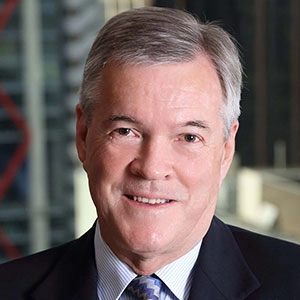Conduct unbecoming; Inflation stirring
The Hayne blowtorch has revealed bad behaviour in the financial services sector that would make Mafia bosses blush while elsewhere inflationary pressures rear their ugly head again, writes Peter Warnes.
Proceedings at the Royal Commission into Misconduct in the Banking, Superannuation and Financial Services Industry capture almost 40% of the market capitalisation of the S&P/ASX 200. Justice Kenneth Hayne and his team are meticulously and embarrassingly uncovering misconduct which would make Mafia bosses blush. The no-nonsense Hayne is living up to his peer group assessments - "his brain power and capacity to work are really extraordinary" and he is famous for his "devastating questions" to counsel.
The big four banks and AMP have taken a pounding and it is only early days in the investigation from which Hayne is authorised to submit an interim report no later than 30 September, with a final report by 1 February 2019. The odds are shortening on an extension such are the epidemic proportions of the misconduct. Whatever the outcome, "the commission cannot resolve individual disputes. It cannot fix or award compensation or make orders requiring a party to a dispute to take or not to take any action."
Don't believe widespread misconduct is an Australian phenomenon. It is happening world-wide, and if similar blow torches of the Hayne royal commission intensity were applied, serious misconduct and the level to which customers' trust has been abused would be exposed. Take Wells Fargo, possibly one of the most highly regarded banks in the U.S. until a couple of years ago, as an example. It has admitted to opening some 3.5 million fake accounts, forcing customers into auto insurance, and charging unnecessary mortgage fees. These activities may seem minor compared to what is being uncovered by Hayne, but federal regulators fined the bank US$1bn for auto insurance and mortgage abuses. But who pays? Either an insurance company or bank shareholders. The perpetrators tend to get off lightly.
Share prices of all institutions so far involved have been volatile and have come under pressure, some more than others. Higher bond yields have tended to lend some support to banks, but the wolves have taken to AMP. As the AMP share price slides perilously close to $4.00 from $5.20 when the FY17 results were released on 8 February, one needs to be careful the baby is not being thrown out with the bath water. There will be a price which will attract the vultures.
The Treasurer Scott Morrison has warned of jail time for some. But which authority dispenses such a sentence? Certainly not a coalition-led parliament which was forced kicking and screaming to call a royal commission after vigorously voting over 20 times to reject the installing of same. A Hayne-led Royal Commission into Misconduct in Government Spending over the past decade could see many a politician draped in horizontal stripes, rubbing shoulders with familiar banking and insurance mates. If I were the Treasurer, I would be keeping my head down and saying little. Remember glass houses and stones.
With the May budget just two weeks away, income tax cuts are on the agenda. First modest cuts for those earning less than $87,000, with more significant cuts starting in 2022-23. Yep just five years away. Why not eliminate the GST on all household gas and electricity bills until 1 July 2020, starting immediately? This will help all households, including welfare recipients, and ease the burden of rising household expenses. The government is fast to introduce levies like the budget repair levy, but slow to assist when their policies adversely affect the household budget.
Commodity prices pushing inflationary expectations
After some trade war and Syria-related safe-haven inspired buying, which temporarily pushed bond yields lower, the U.S. bond market has rolled over. Concerns over inflationary pressures have re-emerged, resulting in falling bond prices and yields on the rise. The U.S. 10-year pushing to 4-year highs and edging through the "psychologically significant" 3.0%.


